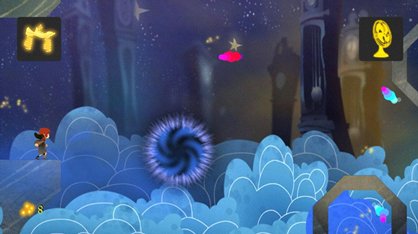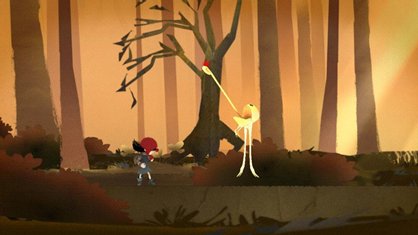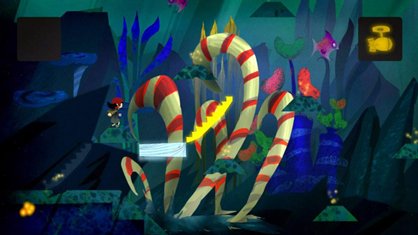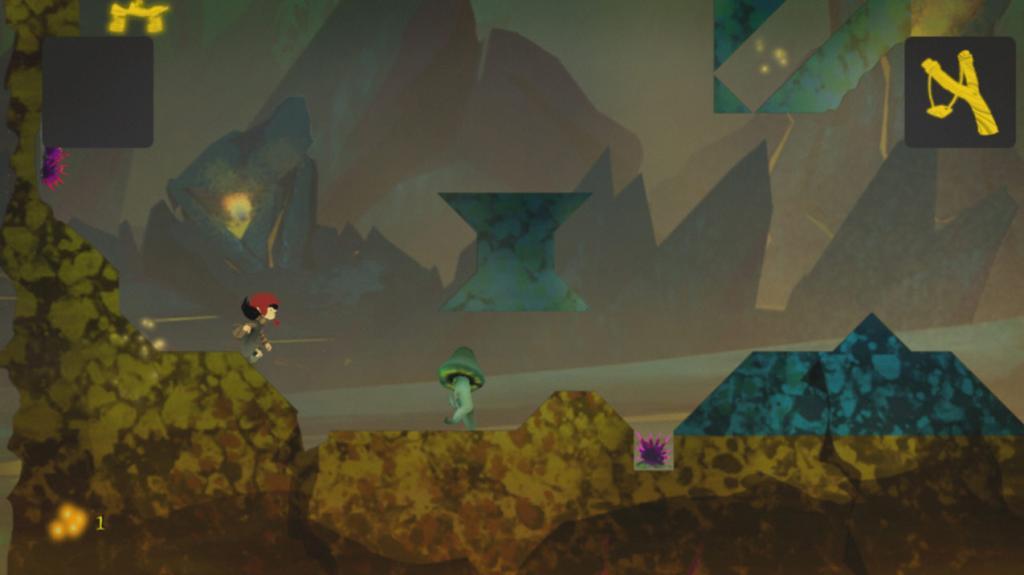GamesRadar+ Verdict
Pros
- +
The gorgeous art
- +
A bittersweet
- +
touching story
- +
A beautiful soundtrack
Cons
- -
Repetitive gameplay
- -
Unnecessary difficulty spike
- -
Lack of strategy
Why you can trust GamesRadar+
There are games that try to follow in the footsteps of other successful games, and there are games that try to carve their own path. It’s hard not to root for the games that try to do something new, but the danger with innovation is that what’s new isn’t always good. Often original games are admired more for their intent than their execution. For better or for worse, LucasArts’ Lucidity is just such a game.

Unfolding in a gorgeous illustrative art style, Lucidity is the story of Sofi, a young girl journeying through a dream world and confronting her fears. Sofi is an instantly likable protagonist, a curious button-nosed child in red stocking cap and simple dress. Over the course of the game, she travels through increasingly dark and spooky dream worlds as the player keeps her safe from those dangers a child can’t understand or deal with on her own.
Twisted and Tim Burton-esque as some of these stages become, they’re never a collection of random nightmare worlds – Lucidity is about something, and the stages reflect that painful story. The world of Sofi’s dreams, especially the earlier levels, is simply beautiful. Modern and nostalgic all at once, Lucidity has the look of a hipster greeting card come to life. Paired with a beautiful score and lovely journal entries between stages, Lucidity’s presentation is top-notch.
However, the gameplay is nowhere near as successful. Rather than letting you guide Sofi directly through the side-scrolling levels, the game has her constantly march forward until she hits something that changes her course. The player helps her navigate by placing randomly generated puzzle pieces in her way, such as planks, staircases, trampolines, fans, slingshots and bombs - each of which moves Sofi in a different way. In the early stages, this gameplay mechanic works fine – the challenge appears to be to find a route through a level that earns you the most collectible fireflies.

But as the game progresses, the problem becomes twofold. First, there’s no variety to the gameplay, no curveballs thrown that switch things up. Second, due to the randomly generated nature of the pieces and long levels that scroll forward at a constant rate, there’s no way to plan ahead. You never know what dangers lurk beyond the edge of the screen, and you don’t know what piece will appear beyond the next one. Get stuck without the piece you need, and you have no choice but to spam them randomly until you get what you need. It’s mostly luck, plain and simple. You can no more be good at Lucidity than you can be good at scratch-off tickets.
The further into the game you get, the more demanding the levels become, with more enemies, more bottomless pits and more roadblocks that need to be destroyed with bomb pieces. In these later stages, the sluggish movements of your cursor can equal death. You often can’t place a piece fast enough, so Sofi will hurtle to her death while you get a staircase in place a moment too late. Lucidity offers both WASD keyboard control and mouse control, but neither feels completely satisfying – keyboard control is smooth but slow, while mouse control is fast and jerky until you get the sensitivity adjusted exactly to your liking. Still, anyone with enough patience can finish even Lucidity’s most difficult levels, but with so much random chance involved, most players will end up doing the same stages again and again until they get just the right combination of pieces.

Gameplay frustrations aside, Lucidity does deserve some credit. The developers set out to make a game with a unique art style, protagonist and setting. The story behind the game is satisfying, sweet and sad - neither as obtuse as some experimental games or as blunt as most mainstream game plots. Lucidity is an interesting experiment, a beautiful indie-flavored game and a welcome addition to the Steam and Direct 2 Drive libraries. Gamers who appreciate metaphor and meaning will certainly find much to enjoy here. It’s just a shame that it isn’t more fun to play.
Oct 13, 2009
More info
| Genre | Puzzle |
| Description | A great visual style isn’t enough to keep this XBLA puzzler from growing stale. |
| Platform | "Xbox 360","PC" |
| US censor rating | "Everyone","Everyone" |
| UK censor rating | "","" |
| Release date | 1 January 1970 (US), 1 January 1970 (UK) |



